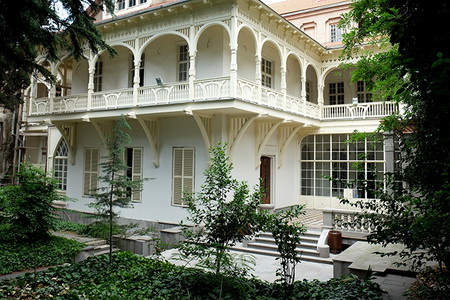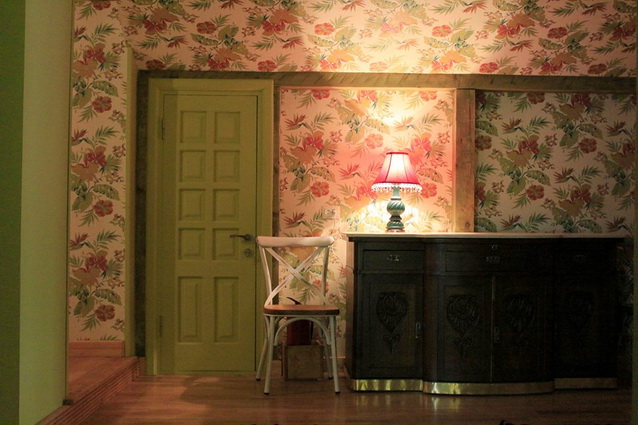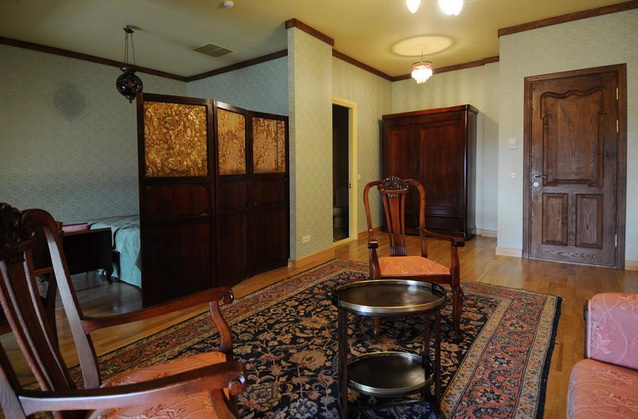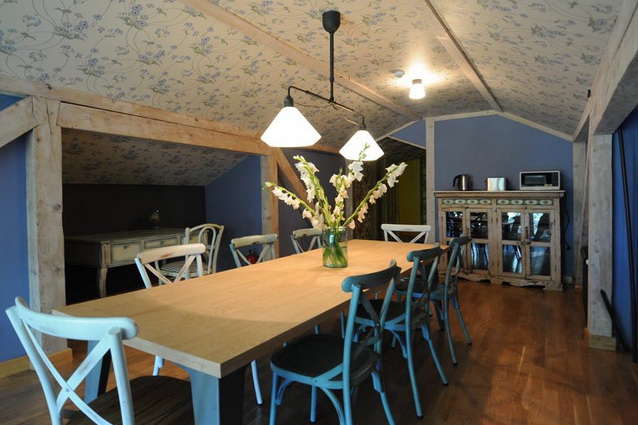Writers’ House of Georgia to launch residency program for foreign authors

One of Tbilisi’s storied cultural venues, the Writers’ House of Georgia, is set to offer residency for foreign authors and translators in a bid to foster international links and literary collaboration in Georgia’s capital.
Located on Machabeli Street near central Tbilisi’s Freedom Square, the venue’s significance is underlined by its history as a hub for cultural events in Tbilisi since the early 20th century.
Serving as a meeting place for writers and poets and and exhibition gallery for painters since its opening in 1905, managers of the house unveiled its first residential apartments earlier this month.

One of the renovated rooms for the residency program at the venue. Photo: Writers’ House of Georgia.
A release on Monday said the venue would join the international network of literary houses and residency venues by offering foreign writers a stay in its renovated suites.
Hosts of the upcoming residential programs expect to hold literary seminars, workshops and discussions at the house with the goal of fostering new international collaborations.
In addition, the renovated rooms will serve as accommodation for visitors of the annual Tbilisi Festival of Literature.
The building on 13 Machabeli Street was commissioned in 1903 by pioneer of Georgian cognac brandy production David Sarajishvili (1848-1911).
Built based on a project by German architect Karl Zaar, the house features a mixture of Georgian and European architectural trends.

A room named after Russian poet Boris Pasternak. Photo: Writers’ House of Georgia.
Its design is also known for the ceramic tiling of its porch from the internationally recognised German manufacturer Villeroy & Boch as well as sculpted ornaments throughout its facade.
Sarajishvili hosted evenings of literature and art at the venue since its opening, with the house also serving as short-term residence for prominent artists and public figures including Georgian poet Akaki Tsereteli (1840-1915) and German writer and translator Arthur Leist (1852-1927).
Following Sarajishvili’s death in 1911 and the annexation of Georgia by the Soviet Union in 1921 the house was designated for use of Georgian writers and artists, hosting virtually all prominent local authors in literary meetings throughout the 20th century.

A dining room of the renovated Writers’ House. Photo: Writers’ House of Georgia.
The contemporary Writers’ House of Georgia was established at the venue in 2008 and works as an "open space” for local and foreign authors and artists to present their creations to the public.
The house also serves as a venue for literary awards and establishment of international cultural ties.
Several of the rooms of the building are named after the great international authors and themed after countries of their origin, including the John Steinbeck American room and Nizami Ganjavi Persian room.
 Tweet
Tweet  Share
Share